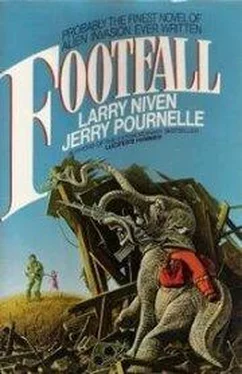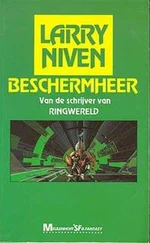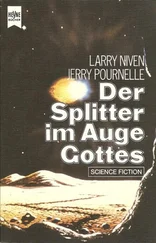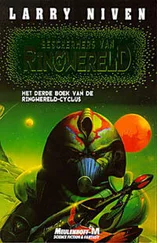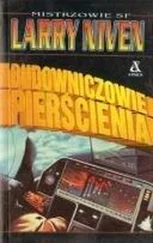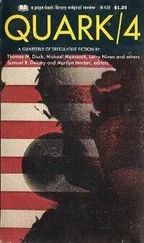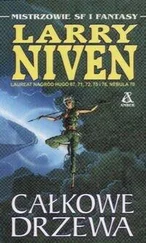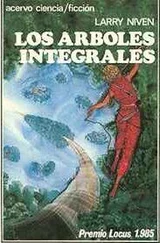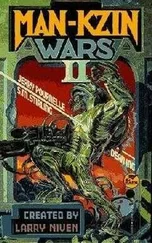“TV. More likely radio. Police radio. Even CB.”
“Jeez,” Hargman said. “Look, just what is this secret we’re protecting?”
“What do you care?” Jack demanded.
Jenny remembered the gray face of the President. “Hey, look, we’re all on the same side, remember? What’s important is not to let them get the idea there is any secret about Bellingham. Let’s work on that.”
“Round up the CBs,” Hargman muttered. “Won’t be easy — hey, won’t that make the snouts suspicious? No CB chatter here at all?”
Jack’s chin bobbed up and down. “We’ll set up fakes. Lots of chatter, but it will be our people doing it. Thanks.”
“Sure,” Deputy Young said. “But — dammit, I don’t like not knowing what I’m protecting.”
“You don’t want to know,” Jenny said.
General Edmund Gillespie closed the door, and the sound of hammers and riveting guns died away. Jenny could still hear them but they no longer tore at her eardrums. The office was cluttered. Plans and blueprints covered every desk and table, and more hung on the walls.
Jack Clybourne removed his ear protectors with a look of relief.
“Max,” General Gillespie said, “you remember my wife’s kid sister. They promoted her. Lieutenant Colonel.”
A wide grin split Max Rohrs’ face. “Hey, Jenny. Good to see you. That’s great…”
“And this is Jack Clybourne,” Gillespie said. “Max is the chief construction foreman on this job. Max, Jenny and Jack are here as — let me put it right — as personal representatives of the President. They’ll go back and report to him.”
“Okay,” Rohrs said. “I knew we were important…”
“Max, you’re all we have,” Jenny blurted.
“Yeah, I knew that.”
Gillespie waved them to chairs. “Drinks? We have a good local beer. I recommend it.” He opened a refrigerator and produce several bottles. They had no labels, and the bottles were not a alike.
“Sure,” Jenny said.
Jack frowned but accepted a bottle.
“So how are we doing?” Jenny asked.
“Not bad,” Max Rohrs said. “Matter of fact, we’re way ahead of schedule.”
“Why’s that?”
“Well, we got that nuclear sub hid out in the harbor. Plenty of electricity. And we’ve got every computer design system on the West Coast. That all helps. Mostly, though, it’s just there’s no paperwork,” Max said. “No telephone lines to Washington. The engineers plan something, the computer people check it out, E and I agree, and it goes in, no conferences and change-approval meetings. We just do it.”
“It helps that everybody busts ass,” Gillespie said.
“That’s for sure. We’re here to get this done, not make money and take coffee breaks.”
It shows, too, Jenny thought. Max doesn’t look as if he’s had a night’s sleep in a month, and Ed looks worse. “So, when can I report she’ll fly?”
Max looked thoughtful. “Supposed to take a year more, but I’ll be surprised if we can’t launch in nine months. Maybe sooner.” He unrolled a sheath of drawings. “Look, the heavy work is the base plate. The barges bring that in pieces, and we have to put it together. Heavy work, but it’s still just welding and riveting. Then there’s the gun that puts the bombs behind the butt plate. If that fouls… well, we’re putting in two separate TBGs.”
“What?”
“Thrust bomb guns.”
“Oh. But there’s all the electronics, and life support, and — don’t I remember they needed nine months just to change toilets on the Shuttle?”
“Sure, NASA style,” Gillespie said. “We just install the damn thing. Of course it helps that we’re not shaving off ounces. We’ve got plenty of lifting power.”
You sure do. “Is everything coming in on schedule?”
“No, but we’re dealing with it,” Gillespie said. “Maybe you’ve noticed, there aren’t many of my Air Police here, just enough to guard the inner fences. I sent the rest over with Colonel Taylor to the Bremerton Navy Yard to put the fear of God into those bastards…”
“Which sped up deliveries something wonderful,” Rohrs said. “Here, let’s have another round.” He fished out more beer bottles.
“We’ve learned a lot of security tricks,” Gillespie said. “From Vietnamese, mostly.”
“Refugees?” Jenny asked.
“Some refugees, but mostly former Viet Cong. They know a lot. Ways to hide convoys. Hollow out logs to transport steel. Tunneling. All the things they did to us.”
“Maybe you should have kept your security troops here,” Jack Clybourne said. “I don’t think your local sheriff is enthusiastic about your project.”
“Yeah, I know,” Gillespie said. “I thought of telling him what we’re doing. Maybe that would get him working.”
“Why not?” Jenny asked.
“No. No telling what those people will do if they know what’s going to power this beast.” Gillespie shook his head. “The only safe place for miles around will be in the ship. Everything else will go. Somebody may think it’s better that the snouts drop rock on the harbor than have fifty atom bombs go off here.”
“It’s hard to believe anyone would deliberately inform,” Jenny said. “But it’s better to be safe. All right. What we need, then, is cover stories. What are you building if it’s not greenhouses?”
“We thought about that a lot,” Gillespie said. “How do you like a prison?”
“Prison?”
“Secret, for political prisoners. Explains why there are so many soldiers. If anybody gets too suspicious, we let them think we’ve got political prisoners from Kansas. Collaborators we couldn keep in Kansas because they’d be torn apart by mobs. Deserters.”
“It might work,” Jack said. “And if they don’t believe that what do you fall back on?”
“That’s as far as we’ve—”
“Nested cover stories. Like an onion.” Jack began drawing concentric circles on a notepad. “Penetrate one and you come to the next, and you still don’t have the real secret. So what’s the next one?”
“Bathyscape?” Gillespie asked. “Underwater research facility under construction?”
“No. Why keep that a secret? Hell, we’ll come up with something. Let’s keep talking.”
Jenny leaned over to look. Outside the circles Jack had printed GREENHOUSE. Inside the first, COLLABORATORS.
They drank.
“Snouts,” Jenny said.
“Eh?”
“Captives. A big research facility, to study captive snouts. The aliens wouldn’t bomb that, but we’d have good reason to keep it secret from our people.”
“That’ll work.”
“In fact, that’s why we house the collaborators here, to talk to the snouts!”
Clybourne smiled. “So. Who do we have who can design prisons?”
“We have the skeleton of a good story. Now we put flesh on it. What would you import? Whatever it is, we have to bring it in and show it. We’re supposed to be growing food. Ships would take food out. We’ll bring them in full and send them out empty.” Next to GREENHOUSE he wrote FOOD and an inward-pointing arrow. Next to COLLABORATORS he wrote JAIL, JAILERS. Within the second circle, SNOUTS. GET SNOUTS. “We’ve got snout prisoners, but they’re crazy. They go where they’re pushed. They don’t talk even to each other. But we can show them to people.” Jenny grinned. It’s the first time I’ve seen Jack get really turned on about something. Other than me. “Circles,” Jack said. “Layers. The security system is in rings, just like the cover stories. They look like they’re set up to keep you out, and they will if you’re not too determined, but the real purpose is to keep you in if you do manage to penetrate — heck, we’ll have a prison, not too large, maybe, but big enough to take care of anyone who learns too much.”
Читать дальше
